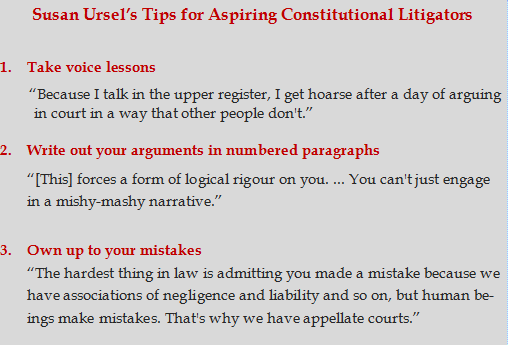By Leila Far Soares
Jonathan Rudin, program director at Aboriginal Legal Services and experienced litigator, will be co-teaching the Asper Centre’s Clinic course as the new Constitutional Litigator-in-Residence for Fall 2021. Mr. Rudin has written widely and spoken passionately on the topic of aboriginal justice and has advocated countless cases before all-levels of Canadian court. We are very fortunate to have him join our faculty at the law school this coming term.
Mr. Rudin’s interest in the law emanated from a desire to influence social change, a desire which served as the driving force behind his motivation to attend law school. Yet, for just over a decade after graduating and getting called to the bar, he did not work directly in law. Instead, Mr. Rudin opted to work with social justice organizations, where he could focus on fundraising and organizational development: “I wanted to get involved with things that I felt were working more broadly and systemically to address issues,” rather than “putting a Band-Aid on a gaping wound.”
However, this social justice work ultimately led Mr. Rudin to a career in litigation. His involvement with several indigenous organizations coupled with the knowledge he gained while completing his Masters in Constitutional Law at Osgoode Hall, piqued his interest in indigenous justice and culminated in an opportunity to work for Aboriginal Legal Services. ALS marked the beginning of Mr. Rudin’s engagement with constitutional litigation, allowing him to intervene in a number of significant and noteworthy cases. Of these, Mr. Rudin described R v Gladue and R v Ipeelee as two cases which stand out as most memorable to him. “You don’t always know going in how significant a case will be, how the court is going to take it, or what they are going to focus on.” Mr. Rudin emphasized the real issues and consequences at play in bringing constitutional challenges: “when you do this sort of work, especially if it is constitutional, you don’t just lose for your client, there are bigger issues at play.”
Mr. Rudin plans to bring the litigation experience he’s gained at ALS to the University of Toronto Faculty of Law this fall, offering students a practical perspective and sharing insights as to what constitutional litigation really entails. He hopes to convey “a sense of how the process works and what it takes.” His experiences speaking before the Court have taught him valuable lessons in what judges want: brevity, clarity, and structure. “Writing a factum or doing oral arguments before the court, you are presenting things to an audience: judges. This is a very different audience, and one we are not familiar with playing to.” He plans to share these lessons, alongside many more, through the clinic.
In the meantime, I asked Mr. Rudin if there was any advice he could offer to current law students. He remarked how difficult being a law student during a global pandemic must be and the inevitable fatigue that must accompany zoom law. In fact, Mr. Rudin described the challenges he faces as a lawyer working in a COVID world. “A lot of the work I do, it’s not me, it’s a whole team of people working together,” and meeting over zoom can certainly change professional dynamics. Mr. Rudin expressed his hope that next fall he will be able to meet with students in person. To mitigate zoom fatigue and the exhaustion that can come from the demanding nature of law school generally, Mr. Rudin stressed the importance of maintaining interests and activities outside of the law. For Mr. Rudin, this takes the form of regular jam sessions with his band: Gordon’s Acoustic Living Room.
Additionally, Mr. Rudin encourages current students to keep an open mind as they navigate through their years of law school. Often times, he remarked, students have a pre-conceived notion of what area of law they want to pursue without knowing much about what it really entails. “There are all sorts of areas of law that we know nothing about and the more opportunities you have to try things the better.” He lauded the Asper Centre’s clinic as giving students a real sense of what working in constitutional law encompasses. He encourages students to take the opportunities the clinic has to offer and looks forward to meeting students in a few short months.
Leila Far Soares is an incoming 2L JD student at the Faculty of Law and is currently one of the Asper Centre’s summer research assistants.

